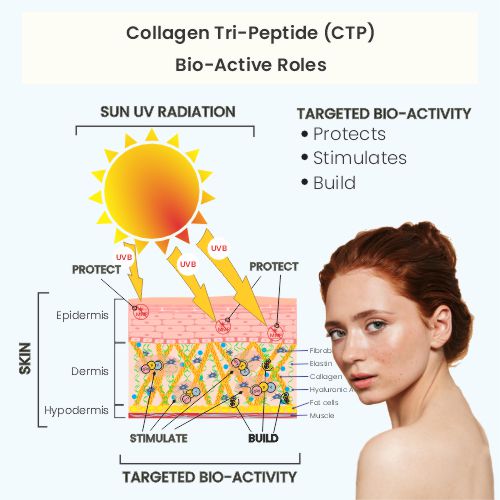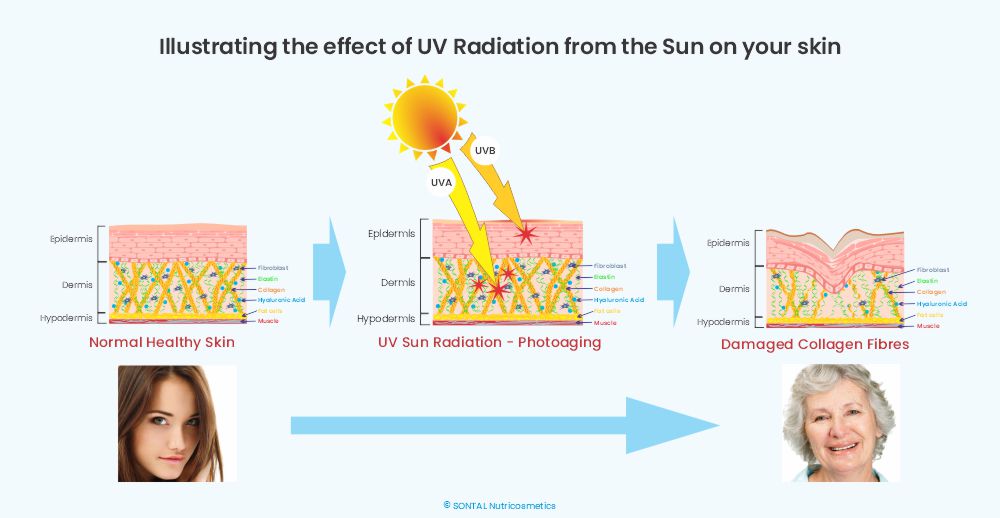7 Benefits of Collagen Tripeptide for skin health
Tripeptides are the “new kid on the block” but don’t mistake this innovative approach to collagen peptides for a lightweight.
Tripeptide marine collagen, or CTP (Collagen Tripeptides), is a collagen hydrolysate with a tripeptide concentration of more than 15% versus general collagen powders which is less than 1%.
SONTAL TRiPEPTiDE Capsules contain MoriKol™ a 100% piscine-derived, collagen hydrolysate which contains a minimum of 15% of peptides in the highly bioavailable, tripeptide format Gly-X-Y, where X and Y most commonly include proline, hydroxyproline and alanine.
These Tripeptides are the bioactive component of any collagen powder, the higher the tripeptide density, the more bioactive molecules are reaching the target tissue in your body.
The tripeptides help to PROTECT the skin against the harmful MMPs (collagen digesting enzymes) produced by the UVB radiation from the sun.
They also STIMULATE the fibroblast cell to produce endogenous collagen in the target tissue.
Because these tripeptide molecules have the ” essential amino acid sequence” unique to human collagen, it serves as the BUILDING blocks for new collagen.

Here are the unique benefits of collagen tripeptide for skin health
- Protection against premature photoaging of the skin.
- Protection against the harmful UV radiation of the sun.
- Promotes healthy skin
- Protects skin from oxidative stress
- Minimizes wrinkles and fine lines
- Improves skin hydration
- Reduces skin roughness
The harmful effect of UV Radiation from the Sun

Protecting the skin against premature photoaging
Photoaging refers to premature skin ageing caused by chronic exposure to UV radiation, especially its UVB component, which is regarded as the primary cause of skin damage.
Premature ageing refers to the ageing process not associated with natural intrinsic ageing, but rather the ageing due to exposure to UV Radiation.
Collagen tripeptide side effects
There are no side effects when using collagen tripeptides.
Tripeptides are amino acid structures identical to endogenous human collagen.